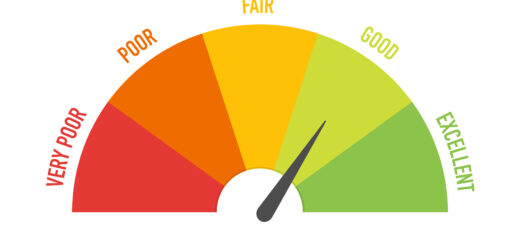Improve Your Credit Score-Quick Tips
Improving your credit score can be considered a necessity. Most of us take out loans to buy a house, set up a business, or buy a car. Many students take loans to further their education. How soon the loan is provided, the rate of interest, and the amount given will all depend on your credit score which is based on your credit report. People with scores of 700 and more are the beneficiaries of lower interest rates and fast approvals. Imagine if your score is greater than 700 and another person has a score of 698. The person with score of 698 will have to pay interest that is higher by one-half percentage point. This means over the course of a loan, the person with a lower score will pay $19,000 more in interest on a loan of $165,000.

A credit score takes into consideration: payment history, current earnings, current debt, length of credit history, types of credit utilized, and your new credit.
You can take a few simple steps and improve your credit score so it is higher than 700.
- Maintain a long, healthy credit history.
- Keep your oldest credit card accounts open and be sure to pay all bills in time. Never keep bills pending over a 30 day period. Pay the minimum charges due each month but try to keep balances low or pay them off in full. Late or delayed payments drive your score down so always pay bills on time or early. Keep a tab on due dates and ensure that all bills are paid.
- Do not have too many credit cards. Learn to say “NO,” to offers of free credit cards. Avoid using all the available credit on the cards.
- Ensure that the credit report you have is accurate and that there are no errors.
- If you have a large amount of outstanding debt, consider a consolidation loan to pay if off quicker.
- Never suddenly close or open accounts. This leads to suspicion that you are trying to manipulate your credit report.
- If you are having problems, speak to your creditors well in advance and work out a repayment plan. Request the creditor to refrain from reporting late payments.
Learn all you can about credit reports and scores and keep the criteria in mind while managing your finances. Maintain the debt-to-credit limit ratio and, if need be, take the help of a finance planner. Improving your credit score is something everyone can do.
Even if advised, refrain from filing for bankruptcy if at all possible. Try curtailing expenses, plan your expenditures , and avoid spending what you have not earned.




